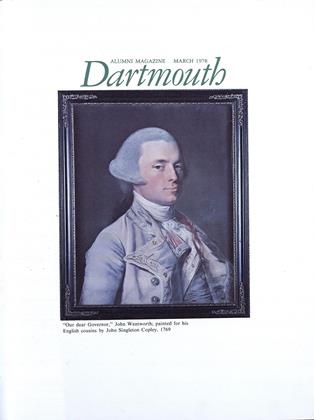With obvious affection, the authors trace the life of activist George Wiley in the context of the social upheavals of the early sixties. Although he was black, George Wiley grew up essentially as a white male in America. Though Wiley's physical characteristics would not allow him to "pass" for white, it wasn't until his early thirties that he began to accept his own racial identity.
Yet, like so many of us, he was eventually swept up by the turbulent forces of the 19605. At Syracuse, where he was developing a distinguished career as a chemistry professor and researcher, he began a cautious and gradual involvement in the civil rights movement by joining the Congress Of Racial Equality. His exceptional leadership ability and increasing zeal pushed him rapidly up the hierarchy of CORE, until he eventually became James Farmer's right-hand man. Throughout his short activist career, however, he never escaped the suspicion and even hostility of many of his colleagues who seemed never fully to accept this well-spoken, well-mannered and highly educated chemistry professor who gave the appearance of "being white." This factor, for example, obstructed his ascendancy to Farmer's position when the latter stepped down from the CORE leadership, despite open acknowledgement of Wiley's administrative skills and CORE'S need for such skills.
Leaving CORE, Wiley immediately became involved in a series of campaigns on behalf of the nation's poor which led to the creation of the National Welfare Rights Organization (NWRO), a multi-racial association of the too-often faceless women on the nation's welfare rolls. This was a dramatic step when viewed in the context of a time when most black leaders espoused varying degrees of racial separatism and the need for black men to rid themselves of what was perceived as the shackles of a black matriarchal society.
Wiley's eventual and dramatic ouster from the top executive position of NWRO seems almost inevitable, given the overwhelming internecine forces within the welfare rights movement and given Wiley's own background and demeanor.
After his ouster from the NWRO, Wiley floundered temporarily in despair. He soon began plans, however, to build a multi-racial organization designed to attract the 75 percent of the American population earning less than $15,000 a year, for the purpose of correcting what he felt were grave inequities in the federal tax system. This focus was to be the spearhead of a larger, visionary effort to establish a broad-based economic equality. While this plan was still in its embryonic stage, Wiley was killed at age 42 in a tragic boating accident.
The Kotzes have made a commendable effort in writing this book, yet their labor sometimes appears divided between an attempt on the one hand to give an analysis of a social movement through the life of one exceptional man and, on the other, to analyze this man's life in the context of his role in a movement which, by necessity, mercilessly fed on the energies and talents of those whose commitment set them apart. Thus, we are left with an incomplete picture of the man. We still do not know entirely what motivated him. To what extent, for example, was he moved by a desire to overcompensate for his "white" background? Moreover, perhaps because the authors depended so much on living sources for their material, they have given little insightful criticism into the attitudes and conduct of other black leaders, which so clearly affected George Wiley.
These criticisms, however, only underscore the significance of the book and the fact that it instills a desire to know more. A Passion forEquality highlights many of the contradictions of the civil-rights and economic-equality movements through the experiences of one man whose own life mirrored precisely those same contradictions. His too brief life testifies to man's ability to rise above the limitations of his own background and to play a role in shaping and touching a nation's conscience.
A PASSION FOR EQUALITYBy Nick Kotz '55and Mary Lynn KotzNorton, 1977. 372 pp. $8.95
William McCurine, who directed the ABCProgram in 1969, was a Rhodes Scholar.Returning from Oxford, he earned a law degreefrom Harvard and is now a practicing attorneyin San Diego.
 View Full Issue
View Full Issue
More From This Issue
-
 Feature
FeatureStalking the Student Athlete
March 1978 By Dan Nelson -
 Feature
FeatureThe New Classics
March 1978 By Shelby Grantham -
 Feature
FeatureNEFERTITI
March 1978 By Ray W. Smith -
 Feature
FeatureFaces in the Gallery
March 1978 -
 Article
ArticleAn Untraditional Path
March 1978 By A.E.B. -
 Books
BooksNotes on a Yale man's journal and the 'elbowing self-conceit of youth.'
March 1978 By R.H.R.
Books
-
 Books
BooksAlumni Publications
FEBRUARY, 1928 -
 Books
BooksCanoe Club History
MAY 1967 -
 Books
BooksYES, MY DARLING DAUGHTER.
June 1937 By Benfield Pressey -
 Books
BooksSHAKESPEARE'S POETICS IN RELATION TO KING LEAR.
MARCH 1963 By BENFIELD PRESSEY -
 Books
BooksLEVOLUTION DE LA LITTERATURE FRANCAISE
February 1937 By P. O. Skinner -
 Books
BooksNotes on a Pulitzer not given and on Dr. Bob, a gruff, humane Yankee who helped found AA
JUNE 1977 By R.H.R.


